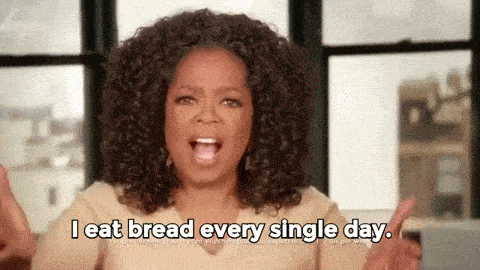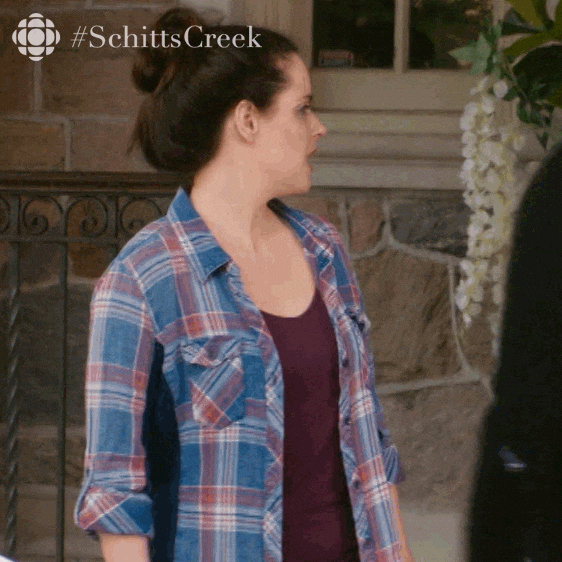“The Israelites said to them, ‘If only we had died by the Lord’s hand in Egypt! There we sat round pots of meat and ate all the food we wanted, but you have brought us out into this desert to starve this entire assembly to death.’“
—Exodus 16:3
I love the story of God providing for the Israelites in the wilderness. It is one of their wilderness stories I paralleled to mine in my book People, Please! But we are going to go a bit more in-depth today. Why? Because I still wrestle with seeing how God provides. His provision is unique for everyone and usually leaves us searching, asking, “Where is it?” but maybe we should be asking, “What is it?”
The Israelites had only been in the wilderness for a month and a half when they were complaining about food. Mind you, they were not actually starving, but they were uncomfortable. They were not enjoying the new limitedness that came with the freedom of leaving slavery under the Egyptians.
It’s interesting to think about. It brings to mind Philippians 4:12-13 when Paul talks about contentment.
“I know what it is to be in need, and I know what it is to have plenty. I have learned the secret of being content in any and every situation, whether well fed or hungry, whether living in plenty or in want. I can do all this through him who gives me strength.”
— Philippians 4:12-13
As the Israelites left Egypt to enter the land of their forefathers (the promised land) they had to go through the wilderness. God was hopeful that this would be a time for them to get to know him again—in a more intimate, holy way—in a way that would refine their character so they would be different and set apart from the world around them. Part of this journey was learning to be content.
They were craving to be full of all the food they wanted. That want (or a weakness) was overpowering the need they had, which was to live life in freedom. If only they were back in Egypt where they could eat as much as they wanted…in bondage.
“If only…” How many times have I said this phrase? If only I didn’t quit that job. If only we had more time. If only I had worked smarter, harder, faster. If only I was a better mom, friend, wife.
If only.
It feels like a phrase that puts all its dependence on the speaker. That’s a lot of weight. It sounds like regret. It sounds like living in the past. Not allowing yourself to live in the present and looking forward, with hope, to the future.
If only we could trust God and not be double-minded, tossed by the waves of insecurity and fear.
They thought their old way of life, of slavery, was better. Because of the food they craved. Because their bellies were full, even though they were being beaten and mistreated. They would give up their freedom and return to a life of captivity because they wanted fuller bellies.
God responds immediately with food. He provides miraculously in the wilderness. But not in the way anyone would have thought.
He tells Aaron and Moses to all the Israelites, ‘In the evening you will know that it was the Lord who brought you out of Egypt, and in the morning you will see the glory of the Lord, because he has heard your grumbling against him…”
—Exodus 16:6-7
In the evening, God sent quail, and in the morning, he sent bread.
“That evening quail came and covered the camp, and in the morning there was a layer of dew around the camp. When the dew was gone, thin flakes like frost on the ground appeared on the desert floor. When the Israelites saw it, they said to each other, ‘What is it?’ For they did not know what it was. Moses said to them, ‘It is the bread the Lord has given you to eat.”
—Exodus 16:13-15
I love the reaction to the thin flakes left after the dew was gone in the morning. Later, they name this food Manna. They described it as a coriander seed (looks like a mini chickpea) that tasted like a wafer with honey (Ex. 16:31). They would grind it down and use it to make bread.
As a person wandering with possibly hundreds of thousands of people in the wilderness, I honestly don’t know that I would expect him to provide food. But he did. They ate the manna every single day until they entered the promised land (ex 16:35). That feels pretty miraculous, an answer to the complaining, and an “easy” way to learn how to be content with exactly what you have.
I say they learned how to be content because of God’s instructions that came with the manna. He placed boundaries on what they should have each day. They were a moving people group. They didn’t need to be weighed down carrying food that would be provided each day.
“The Israelites did as they were told; some gathered much, some little. And when they measured it by the omer, the one who gathered much did not have too much, and the one who gathered little did not have too little. Everyone had gathered just as much as they needed. Then Moses said to them, ‘No-one is to keep any of it until morning.’ However, some of them paid no attention to Moses; they kept part of it until morning, but it was full of maggots and began to smell. So Moses was angry with them.”
—Exodus 16:17-20
They gathered too much or kept it because they didn’t trust Moses and/or God. God was helping them with their weaknesses—teaching them to trust his provision. They had to learn that God would provide for them each day. They could rest easy knowing that every morning after the dew evaporated manna would be there.
Speaking of rest. This is when God also introduced the Sabbath to them.
‘Eat it today,’ Moses said, ‘because today is a sabbath to the Lord. You will not find any of it on the ground today. Six days you are to gather it, but on the seventh day, the Sabbath, there will not be any.’
—Exodus 16:25-26
They learned to gather enough on the sixth day to rest on the seventh. Sound familiar? God had to teach them to rest. They had been in slavery for 400 years as a people. Working and being busy and doing everything was ingrained in them. Rest was not a luxury they had in captivity.
“Bear in mind that the Lord has given you the Sabbath; that is why on the sixth day he gives you bread for two days. Everyone is to stay where they are on the seventh day; no-one is to go out.’ So the people rested on the seventh day.”
—Exodus 16:29-30
They had to trust God. Hoping that after their day of rest, he would do what he said he would do. They had to wait. Can you imagine that first 6th day? The tension that day and into the evening? They gathered enough and woke up the 7th day—no manna, as he said—but what about the next day? Would it be back? They just had to wait.
Waiting is the worst. Amen.
Guess what? God showed up the morning after that first sabbath. Manna was there like he said it would be. Maybe a surge of hope rumbled through those gathering manna that morning. It took some longer than others to get into the new rhythms of trust and rest. But the Israelites learned a new way to be set apart from the rest of the world—boundaries and hope in a God who helps them in their weaknesses—in plenty and in want.
What does that look like for us? Are we looking at how the world responds to needs, or are we remembering a God who responds and provides in different ways that set our story apart?
Lol. Well, that question feels personal. Why? Because we most likely won't like the answer.
Here is where we look to Jesus for some hope for us today.
"What is it?" is similar to what people said about Jesus. "Who is this?" Is this the Messiah?" They wanted a military leader, someone to take down the Romans. They were ready for a fight. Who is he? The God-Man talks about love, eating with sinners, inviting the uneducated to follow him, and telling them that he would die for them on a cross in the prime of his life for their eternal salvation, not earthly salvation.
Who is this? Jesus is the bread of life.
"I am the bread of life. Your ancestors ate the manna in the wilderness, yet they died. But here is the bread that comes down from heaven, which anyone may eat and not die. I am the living bread that came down from heaven. Whoever eats this bread will live forever. This bread is my flesh, which I will give for the life of the world.’"
—John 6:48-51
Jesus is the bread of life. He sustains us. Holy Spirit gives us hope each day and guides us. The Father gives us rest as we trust he will do what he said he will do.
What is God's provision for you and me today? We most likely won't be going into our front yards to gather mini chickpeas to make some bread and wait for the quail to come in the evening. I decided—over this last round of wrestling with God—that his provision will have to be me finding hope in the little pieces of manna he gives me each day. As I move into a new career that may not bring in a lot of dough, one might say, I will look for little provisions each day. I will lean on the Holy Spirit in my weakness of feeling in need but being content in hope. I will look to Jesus and how he did this. Trusting God to provide is hard when it is consistent, and throwing in having to wait and take time to rest—y'all faith is not for the faint of heart.
Can hope be enough for today? I think so.
When we take the if only's and the cravings of our old ways out of the equation and look back to remember all God has done? Can I find hope in boundaries as I recognize my weaknesses in plenty (pride) and want (fear)?
I hope.
Things to think about and comment on:
If you decide to complain? Why?
What might be the weaknesses you have in plenty or want?
Are you looking at how the world responds to needs?
How can you remember how God has provided for you?
Can you rest?














Love this - thank you for sharing!